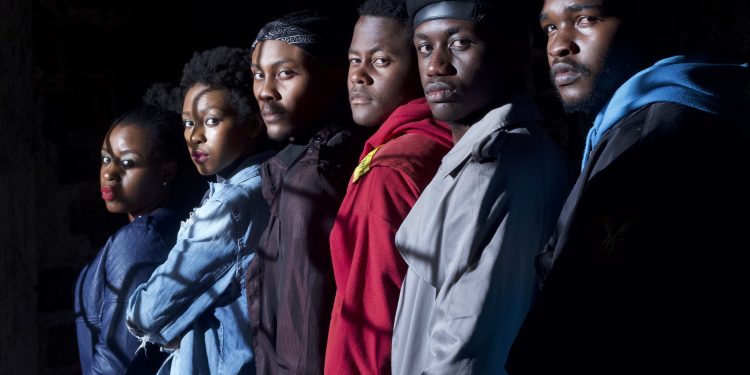Set within the confines of four walls with the corrosive and mercurial personalities of five main characters as the only source of spectacle or intrigue, Nairobby, like a good magical stage act of tying oneself down and letting the unwrapping be the entertainment, is quite an interesting, but daunting, watch.
Directed by Jennifer Gatero (This Is Life) as her first foray into film, Nairobby is a sequel to a rather eventual heist movie that doesn’t exist. The story is rather simple. A group of six ruffled and bemused robbers who happen to be university students are put in a room together and, slowly, their emotions become their undoing. A heist goes badly wrong and the students, fleeing to their safe house, roll around their scattered brains to figure out who has done the dirty on them. Revenge would be almost as sweet as actually getting away. We never get to see the robbery, so we are just as clueless about the happenings before and during the deed as the students. Instead, the movie delves into the hours after, when the adrenaline is still undiluted in the veins and the motives and relationships that would have made the prequel movie come together are the source of all the thrilling conflict in this sequel-esque narrative.
The first part of Nairobby sets the tone perfectly and makes it clear who is who and what role they play in the story. The ramifications and intentions of their actions come to light, and little nuggets of personalities that build up the intensity throughout the film sip through rather smoothly, welcoming the viewer into their chaotic world.
The second act, where anxieties, inquisitions and suspicions come to focus, is held together by beautifully woven dialogue and perfectly acted scenes with the five main characters, played by Jeritah Mwake, Lorna Lemi, Moses Gathoga, Martin Ndichu, and Sanchez Ombasa (Chaguo), bouncing off their fears and expectations off each other at most of the right beats.
The ending, where tensions run highest, has its own share of surprises and gimmicks that are synonymous with this kind of story, but doesn’t fully rev up the antics, choosing a more safe approach to wrap the story and scatter the characters away from our inquest.
On the technical side, the decision to film the majority of the scenes in one location gave the film a claustrophobic feel that fit well with a story built entirely on dialogue. The lighting was good, and the sound mixing didn’t hurt the film at all. Everything felt very touch and go, which would only be a problem if their story lacked the needed ingredients to make it captivating. This story was nice.
That being said, Nairobby does play it safe, almost too safe, with both its narrative and its characters. The stakes, though continuously expressed, are not adequately shown, with the characters emerging as pigeonholed slates without much identity to build on. Some of the character choices are offbeat and, to an extent, confusing, serving only to create the tension against their personal interests. The pacing of the film also suffers, with only so much to be said between the characters in what feels like an extended runtime for an otherwise 30-minute short film.
Taking the same concept as classics such as Quentin Tarantino’s first feature, Reservoir Dogs, the movie, either by creative choice or limitations of their budgets, folds the existing concept and squeezes out the best of the whodunit suspense but without the eccentrics and the bloody gore that came to define Quentin Tarantino. What comes clear as the end credits begin to roll is that Jennifer Gatero, the writer and director, is showing great promise with her characters and her unobtrusive directing. With a clearer identity and risks that grow over time, great things should be expected from her pen.
To wrap this up, Nairobby was a fun watch. They took their risks with the confidence of delivering in such a narrow environment to work around, and they delivered something worth an hour and seventeen minutes of your time. With easily digestible characters and themes, the film is a welcome addition to the evolution of the Kenyan film space.
Nairobby is available to stream on Netflix.









